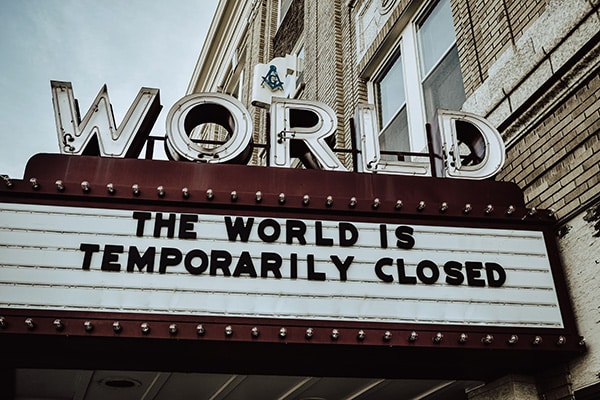You switch on your laptop and talk to a friend on Zoom who lives in the US, email a colleague in Germany, order a new outfit from Bangalore, India, and apply online for a scholarship in the UK. This interconnection is just one way to show that you are a part of globalization.
Globalization makes people more connected socially, economically, and politically. At the same time, it assists in better interaction and behavioral understanding by letting us learn about different cultures.
The late Marshal McLuhan, a media and communication theorist, coined the term “global village” for the first time in 1964 to describe the shrinking and expanding of cultures around the globe due to fast-paced technological advances.
In that era, most people believed that cultural globalization would lead to a more sophisticated marketplace where underdeveloped countries would get support from developed countries financially and in humanitarian efforts.
Nonetheless, many people have reservations about its pros and cons. They realized that the evolution of a global village would raise conflicts among nations and could result in further fragmentation of societies and their cultures. Another concern was a division of power and domination of certain developed counties. This concern was rightly highlighted, and we witness hybrid cultures in several countries, including Pakistan.
In today’s world, the national understanding of culture has expanded due to the new world cultural framework created through the progressing interconnectedness of varied local cultures. In a broader sense, cultures are now more accurately seen as sub-cultures. And they need to understand the context of their geographical surroundings.
According to Anthropologist UIF Hanners, it is the local level where global influences are filtered, transformed, and incorporated into beliefs and practices. Hanners thinks that the local daily life is where international cultural elements get the opportunity to make themselves at home.

Impacts of Modernization
The anthropological meanings of modernization refer to the evolution process that brought about cultural, social, and economic changes with the passage of time.
In the 5th century AD, Roman adapted to Christianity and coined the term modern to differentiate themselves from Barbarians. The Barbarians were non-Christian, particularly people of the Jewish faith. During the renaissance, one had to cultivate a lifestyle based on classical Greek and Roman civilizations to be modern. At the same time, during the enlightenment period, rationalism, science-based knowledge, and the pursuit of progress were modernity’s hallmarks.
Meanwhile, several or all underdeveloped civilizations were affected by the powerful influence of developed counties, like the US, UK, Russia, and the European Union. This is why several anthropologists think of globalization as the westernization of the world.
While analyzing the detrimental impacts of westernization, socialists and anthropologists mostly blamed the US for its alleged imposition of culture and mass media. Nonetheless, several other developed countries such as China, Russia, and Europe are also to blame as they reinforce their culture globally.
Without an objective and inclusive analysis of these issues, we will be unprepared for the rollercoaster of cultural mayhem that could inevitably ensue.
Several anthropologists assert that cultural contact creates uniformity, standardization, and homogenization. The global monoculture that we observe is sterile, dull, and artificial. A prime example of this aggravation is the proliferation of American fast food restaurant chains in foreign countries. McDonald’s, Burger King, Pizza Hut, and KFC taint the cities of even former Eastern blocked countries such as Hungary. Contrary, the extended chains of Chinese, Indian and Thai foods are fanning these cultures in host countries.
By definition, culture is something that connects the deep values and structures in society, and the local or mother language plays a vital role in strengthening this bond. But we see that several languages around the globe have potentially been lost. At the same time, we observed a powerful dominance of several languages like British and American English.
A database website called “languages of the world” reveals that more than 6,912 languages, half are in danger and maybe disappear in the next several decades; they list them as “Endangered Languages.” Losing these languages poses serious cultural threats because archeologists and anthropologists are losing aspects of these smaller cultures. They are now unable to articulate their beliefs and knowledge due to the extinction of their language.

What is Acculturation?
Acculturation is a process of contact and exchange within a culture through which a group of people adopts specific values and practices of another culture that is not originally their own. The adaptation could be minor or, to a greater extent, results in a cultural shift.
When the transitioning process is extreme, assimilation occurs wherein the original culture is entirely abandoned and, as a result, a new culture emerges. However, other outcomes can vary from minor change to total change, including separation, integration, marginalization, and transmutation.
Meredith Small, a cultural anthropologist and author of the book “Our Babies, Ourselves: How Biology and Culture Shape the Way We Parent, describes a test case she studied. This is about Lebanese and Australian mothers whose cultures led them to parent in very different ways. As a result, they feel resentful toward the mothers of the other culture.
Since children play a significant role in all world cultures, it makes sense that each culture would have very different expectations and customs surrounding parenting. This tiny slice of cultural practice is representative of many other ingrained cultural differences around the globe. Perhaps if existing cultures were not already set up to contradict each other, a peaceful threshold could be reached.
With these changes comes responsibility, as humans, to consider the implications of our shifting realities. Without an objective and inclusive analysis of these issues, we will be unprepared for the rollercoaster of cultural mayhem that could inevitably ensue.
It is idealistic to assume a situation where cultures can merge without losing their essence while staying peaceful about how global culture gets in a new shape. Each country feels secure only when it protects its cultural beliefs. Nonetheless, the world has to shift to noncontroversial models with the growing pace of modernization.
Find more posts in our Anthropology Edition

Saadeqa Khan is the founder, CEO, & Editor-in-Chief of Scientia Pakistan. She’s a member of the Oxford Climate Journalism Network (Second Cohort) and NASW. Saadeqa is a fellow of NPF Washington, The Falling Walls Foundation, and the Science Journalism Forum. Saadeqa has won several international journalism grants and awards for her reports.

